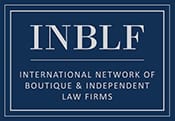Pot marketers eating up opportunities, shaping regulation
July, 2015
Eric F. Greenberg | Attorney-at-Law
The swift emergence of legal marijuana, for medical or merely recreational use, continues to be a story of fascinating challenges.
Particularly challenging are the questions about how these products’ content or sale or labeling can or should be regulated by government.
We examined many of these questions in this space in July 2014, and now, as Colorado and Washington State settle into implementing legalization of recreational use, and California plans a ballot initiative on whether to legalize recreational use next year, and the idea seems to be capturing attention in other states, packagers are starting to think in terms of best practices for a wider market.
Marijuana-infused edibles, rather than smoke-able marijuana, present a range of unique issues. A big part of the reason is that they don’t squarely fit into any of the traditional product categories.
After all, as I am fond of saying when I have had the privilege of teaching students and industry officials about the regulation of foods and drugs, if you tell me what the product is, and especially what its maker’s intended use for it is, then I can tell you what the regulatory requirements for it will be. I used to think that dietary supplements were the perfect law professor’s “hypothetical” when examining questions like this, as they have a combination of characteristics that squarely challenge the traditional definitions, in some ways like foods, in some ways like drugs.
Well, as a dream hypothetical, dietary supplements may have met their match in edible cannabis products. Not smoke-able marijuana, and not marijuana for medicinal uses, but candy, snacks, and other products intended to be eaten that are infused with marijuana or its active ingredient.
Here we have a legalized product whose intended use is as an intoxicant, and in the case of edible cannabis products, it’s an intoxicant combined with a traditional food.
Regulators are taking steps to assure the safety of these products, and as is often the case, that means imposing requirements on the packaging itself and on labeling. Colorado requires edible cannabis products to be packaged in child-resistant containers and to feature a variety of types of information on their labels, including key details of their pedigree, usage instructions, a standardized symbol for cannabis-containing products, and a series of warning statements such as “There may be health risks associated with the consumption of this product,” and “This product is infused with marijuana,” and a warning against driving or operating heavy machinery, among others. Interestingly, one of the required statements is that “This product was produced without regulatory oversight for health, safety, or efficacy,” despite the regulatory controls the state imposes on growers, distributors, and retailers.
One California-based maker of cannabis edibles, Auntie Dolores, has its eyes on distribution in different states and is looking toward a future of wider legalization for medicinal and recreational uses. The company has started working closely with governments to make sure the measures put in place are sensible and effective, and also, if they can, to assure they are uniform from state to state. (For more on Auntie Dolores, see page 26.)
As with any other legal or regulatory subject, if each state has different packaging and labeling requirements, and even some municipalities make their own, and then these various requirements change frequently, the costs to the industry “will become prohibitive,” says Marjorie Fischer of Auntie Dolores. For example, she says, in Washington, individual servings need to be individually wrapped, but that’s not required in other states. “We hope for reasonable regulations that are uniform and implemented in all states [where legalization occurs] so that there are the same standards and expectations to manufacturers, no matter where they are located.”
Fischer says her company’s products feature dosing information that is particularly detailed and goes beyond what is required by law. “Especially with edibles, people struggle with how much to have,” she says, so her company takes extra care to guide users. Because child-resistant packaging is commonly required by law or regulation, marketers are using zipper closures, shrink wraps and other structures for edibles, even, she says, “pharmaceutical pill jars, or variations of this kind of packaging, that has a locking top.”
She adds that good branding, including distinctive, attractive package and label design also helps reinforce the label messages: “People believe in it more, read it more,” she says.
Time will tell if they’re right about that, just as it will provide answers to many unanswered questions about this emerging, evolving new industry. PW
Eric Greenberg can be reached at [email protected], or visit his firm’s Web site at www.ericfgreenbergpc.com.
This article is informational only and is not intended as, and should not be considered to be, legal advice.
Be sure to check for any updated information about the topics discussed in this article.


